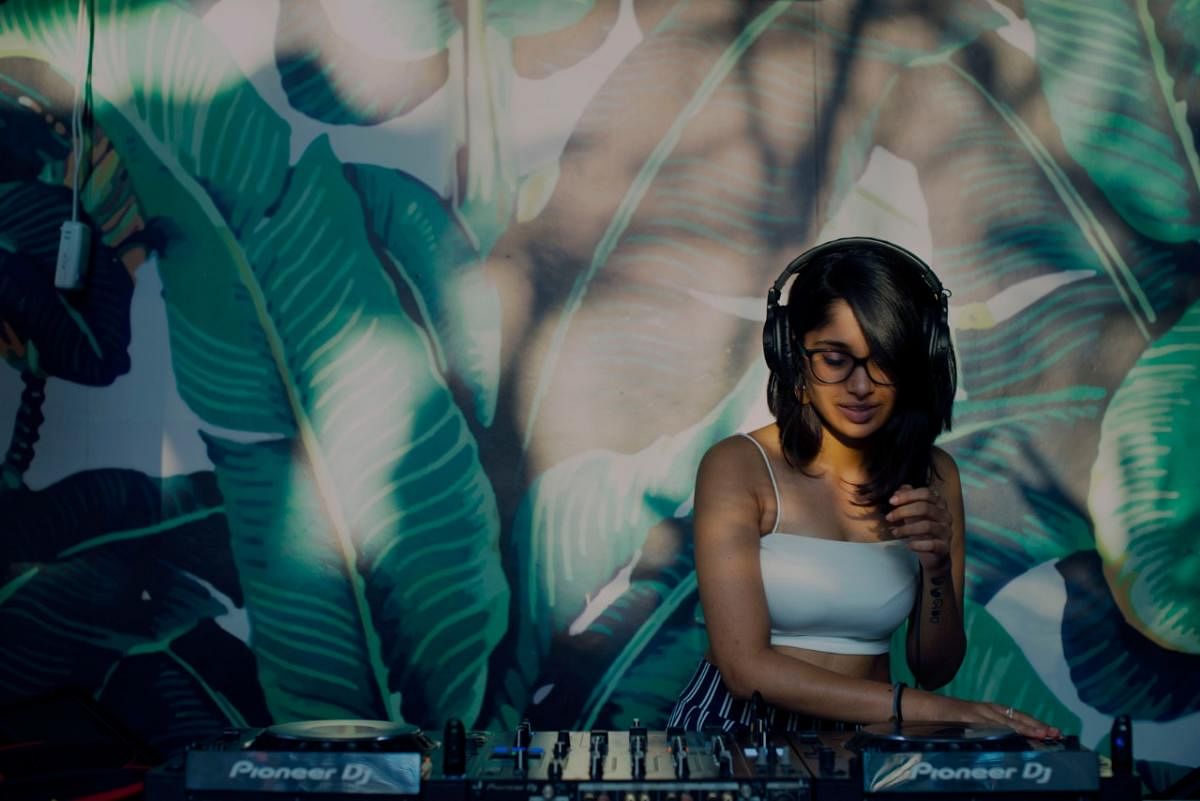
Female DJs don’t always get their due in the male-dominated world of music jockeying, but a few in Bengaluru have made a mark.
The first challenge for them is to overcome prejudice: many hosts believe women can’t keep the crowds engaged.
Preparation is key
Ritu VK worked as a counsellor and psychology teacher for five years before she decided to become a full-time DJ.
Ever since she can remember, she has pursued dancing. She enrolled in a DJ school called TheMusicScool where she trained for three months.
“The course taught me everything about the equipment, and how to handle the crowds and market yourself. When I did my first gig in Indiranagar, I got it was great to see the crowd vibing with me. They were all dancing and having a good time,” she says.
Ritu plays hip hop, retro and Afrobeat music. In recent months, she has played at food festivals, dance jams, and clubs.
“Every place has a different vibe and you need to plan your set accordingly. You may not always get the response you are looking for, but be prepared for that too,” she says.
Performs at: Knowhere, High Ultra Lounge, Tiamo, Indigo XP, Sanchez, private weddings and VH1 Supersonic pre-party at Foxtrot, to name a few.
Not an easy job
Carissa D’ Almeida, who goes by the stage name of Carissa, is a full-time lawyer. She becomes a DJ on the weekends. She believes having a mentor is helpful. She is being mentored by Stalvart John, music producer and DJ.
“I was always musically inclined. During parties, I’d be the one who made playlists. So when I was looking to do something different, I thought this might be good. There’s a lot of research involved. You have to listen to a lot of music to create an hour’s set,” she says. Carissa focuses on disco, house and deep house music.
Performs at: Kittyko, Koramangala and Sarjapura Social, Foxtrot
Learn to multitask
Avisha Sati is a DJ who loves how she can control the vibe of a room with her music. “People are attentive. If you mess up, they know. And if you do, you need the confidence to rectify it immediately,” Avisha says.
Just playing music all night isn’t enough. Maintaining eye contact with the audience and engaging with them is important. “Creating the experience is where the challenge lies. An ability to multitask helps,” she says.
Female DJs can be turned away because of their gender. But there’s the other side, too. “Sometimes you are hired because you are a woman,” says Avisha.
Performs at: Taj West End, Cafe Felix, Uno Chicago Bar and Grill, High Ultra Lounge, XU, UB City and ByChance, to name a few.
Late nights add to their worries
Not many women take up DJ jobs because they worry about safety. The first worry is how venue managers and audiences will treat them.
“I’ve never had a bad experience but women are reluctant because of the timings. There will be a lot of late nights which, in our country, is already an unsafe thing,” says Carissa. Getting home alone after work is a concern.
Fee question
A DJ is paid between Rs 10,000 and Rs 20,000 (and more) for a gig of about three hours, according to industry insiders.
A word of advice
With practice, female DJs learn how to deal with people, says DJ Ritu. “When you are new, you can’t expect everything to be handed to you. You have to hustle hard and keep networking. Keep yourself relevant and continue to improve yourself. Learning new skills and bringing something new to the table is what sets you apart,” she adds.
Gigs don’t usually have a written contract, so Avisha recommends asking for advance payments.
“It’s a constant struggle to run for payments. That’s why I always ask for an advance so there’s some sort of transaction that’s already taken place. However, you need to have a rapport with the management before you pitch this idea,” she says.